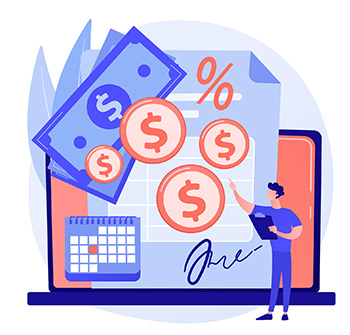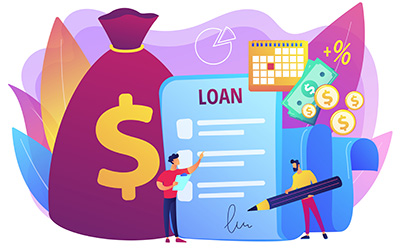Government Low Interest Loans for Small Businesses via SBA
6-10-22
Running a small business has had its share of uncertainty over the past couple of years. Between record inflation, wavering public demand, increasing interest rates on loans, and difficulties with supply chain management, there are many concerns we’ve had to navigate. Fortunately the federal government is always in need of products and services and can provide loans to small businesses to help you pivot to public sector contracting. 
The Small Business Association, or SBA, is a federal agency that got started back in 1953. It was designed to assist, council, and protect the welfare of small businesses, preserve free competitive enterprise and thus strengthen the overall U.S. economy. This is done namely by ensuring small businesses with qualified set-asides (such as service disabled veteran owned, women owned, or economically disadvantaged) are able to secure federal contracts as well as provide low-interest loans to small businesses to ensure they are able to compete for opportunities.
I’ll be upfront and say that securing an SBA loan requires due diligence. There are various requirements and it is a time consuming application process, however many small businesses find it worth their while as the terms are flexible and annual interest rates are very favorable compared to traditional bank loans.
SBA loans are provided by participating lenders, typically banks. The down payment can be as low as ten percent, whereas conventional loans can be up to thirty five percent. The repayment period of the loan is generally a longer period which permits small business owners to remit low monthly payments. SBA loans are often used to open a new business location, employ a new team, or refinance existing loans.
Types of SBA Loans:
7(a) Loan: The 7(a) loan is the most common type of SBA loan and can be utilized for increasing a business’ working capital, purchasing equipment, refinancing existing debt and other purposes. The interest rates are negotiable, and can be up to $5 million with a ten-year term for equipment, working capital and inventory or twenty five years for real estate purchases.
504 Loan: 504 loan funds can be utilized for purchasing land, facilities, and machinery. These are offered in partnership with both banks and bank community development corporations (CDCs). The length of the loan term is ten years for equipment and machinery and twenty years for land.
Microloans: Microloans are up to $50,000 for starting a business, adding working capital, or purchasing inventory or equipment. These usually have term lengths of six years or less.
Disaster loans: Disaster loans are processed via the SBA and are specifically for businesses affected by natural disasters or other emergencies. If a firm’s equipment, inventory, machinery or other business assets have been damaged or destroyed by an unfortunate event or disaster this is the appropriate loan to pursue.
Interest rates for 504 loans, microloans, and disaster loans are fixed, however 7(a) loans are going to have variable interest rates. The level of interest for the loan is dependent on how much is being borrowed. Just like with other loans, there may be additional fees such as processing fees, guarantee fees, and packaging fees. Also just like other loans there are copious documents needed to ensure you qualify.
These accounting documents and forms are typically required when applying for the above: 
- Project-specific information when applicable
- Loan application history
- Business debt schedule
- Statement of personal history
- Balance sheets
- Profit and Loss (P&L) statements
- Business license
- Business lease
- Forms about the history of your business
SBA loans require the owners of the business to sign that they are personally responsible for repaying the loan if the business is unable. Once the information is processed, the SBA will determine if they are eligible for the loan. Sometimes additional paperwork and a review of personal credit history are required. From what can be found on banking websites, typically 680+ is recommended and higher scores obviously have a better chance of being processed. Generally the process takes about two months.
So if you are a small business that is looking to get into federal contracting or you’re already there, an SBA loan can be a great way to add funds for working capital or investing in offices, personnel, and/or equipment at a low rate of interest. To review current open opportunities in federal contracting to see what your company could potentially be bidding on, feel free to start a five-day trial of EZGovOpps to see what’s out there, and what’s been earmarked for small businesses like yours.

Recent Comments